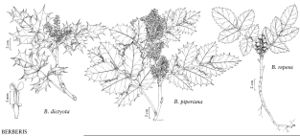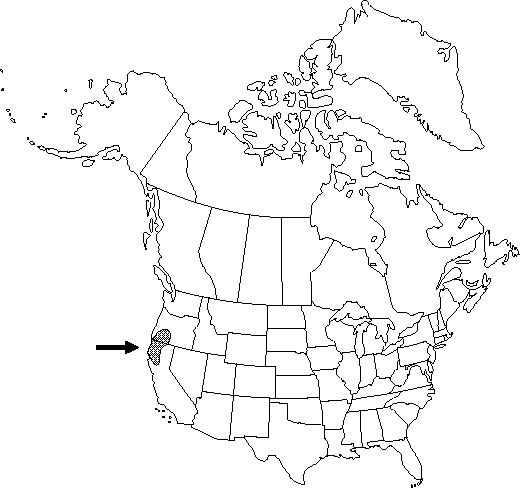Berberis piperiana
Man. Calif. Shrubs, 125. 1939.
Shrubs, evergreen, 0.3-0.8 m. Stems monomorphic, without short axillary shoots. Bark of 2d-year stems brown or purple, glabrous. Bud scales 3-8 mm, deciduous. Spines absent. Leaves 5-9-foliolate; petioles 1-6 cm. Leaflet blades rather thick and ± rigid; surfaces abaxially dull, papillose, adaxially glossy, green; terminal leaflet stalked, blade 3.6-9.5 × 2-5.2 cm, 1.3-2.1 times as long as wide; lateral leaflet blades lance-elliptic to elliptic-ovate or narrowly oblong, 1(-3)-veined from base, base rounded to obtuse or truncate, margins undulate, toothed, each with 6-12 teeth 1-4 mm, tipped with spines to 1.6-2.8 × 0.2-0.3 mm, apex acute to rounded-obtuse. Inflorescences racemose, dense, 25-60-flowered, 3-10 cm; bracteoles membranous, apex obtuse or rounded. Flowers: anther filaments with distal pair of recurved lateral teeth. Berries dark blue and glaucous, oblong-ovoid, 7-10 mm, juicy, solid. 2n = 28.
Phenology: Flowering winter–spring (Mar–Jun).
Habitat: Open wooded and shrubby slopes
Elevation: 900-1700 m
Discussion
Berberis piperiana is resistant to infection by Puccinia graminis.
Selected References
None.

